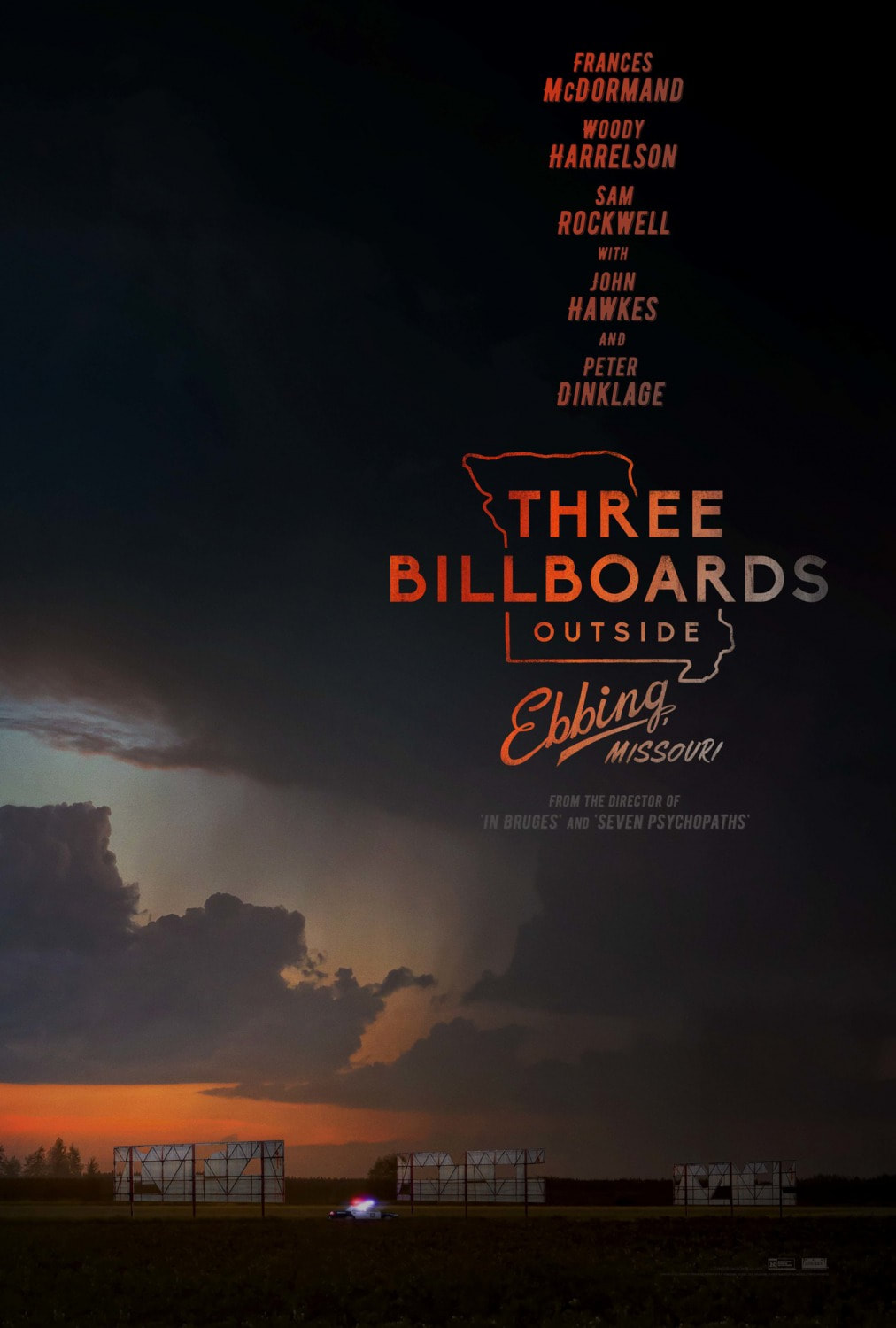Genre: Drama |
With few real surprises, the big moments are slowly built to. The main plot point is dropped like an anvil, however, with the reveal of the billboards. Just like the contents of the billboards, much of the film is fantastic to see unfold without prior knowledge. The name itself is part of this; it tells you nothing about the genre, plot or themes beyond the billboards. This is definitely a film to watch before reading the rest of this article. Spoilers are ahead, and even small ones may spoil some of the emotion the film creates.
Director Martin McDonagh also directed In Bruges and Seven Psychopaths, and that intense realism of character. While Dixon is introduced as a lazy, unintelligent bigot who sucks at his job, his arc is outstanding and the audience grows to care for him. Ending the film as a changed man, lead character Mildred too changes her mind about him. Her character changes too, in subtler and less easily judgeable ways. Parallels are drawn between them, as anger is a motivator and an obstacle for them. We see Mildred's actions go from desperate and righteous to desperate and questionable.
The themes in this film are sensitively addressed but clearly opinionated. The bigotry within the American police force, the rage that people feel after loss or in dead end lives, lack of control over your own life and death... There is a beautiful set of threes in this film, parallel to the three billboards; fire and death. The first event, prior to the film, is the daughter's death by fire. Next, the billboards are burned down, destroyed, but are replaced by community effort. Thirdly, Mildred burns the police station down, not realising Dixon is inside after hours. He is on fire, but rescues the folder that was on his desk; her daughter's murder case. Like the billboards and unlike the daughter, he lives on. Her act of arson not only nearly kills someone in the same way her daughter died, but has her using the same weapon against the police that the murderer used on her daughter. The overt symbolism reflects her aiming her rage at the police for their failings, too. Incredibly talented filmmaking, and definitely worth a watch.
Director Martin McDonagh also directed In Bruges and Seven Psychopaths, and that intense realism of character. While Dixon is introduced as a lazy, unintelligent bigot who sucks at his job, his arc is outstanding and the audience grows to care for him. Ending the film as a changed man, lead character Mildred too changes her mind about him. Her character changes too, in subtler and less easily judgeable ways. Parallels are drawn between them, as anger is a motivator and an obstacle for them. We see Mildred's actions go from desperate and righteous to desperate and questionable.
The themes in this film are sensitively addressed but clearly opinionated. The bigotry within the American police force, the rage that people feel after loss or in dead end lives, lack of control over your own life and death... There is a beautiful set of threes in this film, parallel to the three billboards; fire and death. The first event, prior to the film, is the daughter's death by fire. Next, the billboards are burned down, destroyed, but are replaced by community effort. Thirdly, Mildred burns the police station down, not realising Dixon is inside after hours. He is on fire, but rescues the folder that was on his desk; her daughter's murder case. Like the billboards and unlike the daughter, he lives on. Her act of arson not only nearly kills someone in the same way her daughter died, but has her using the same weapon against the police that the murderer used on her daughter. The overt symbolism reflects her aiming her rage at the police for their failings, too. Incredibly talented filmmaking, and definitely worth a watch.

